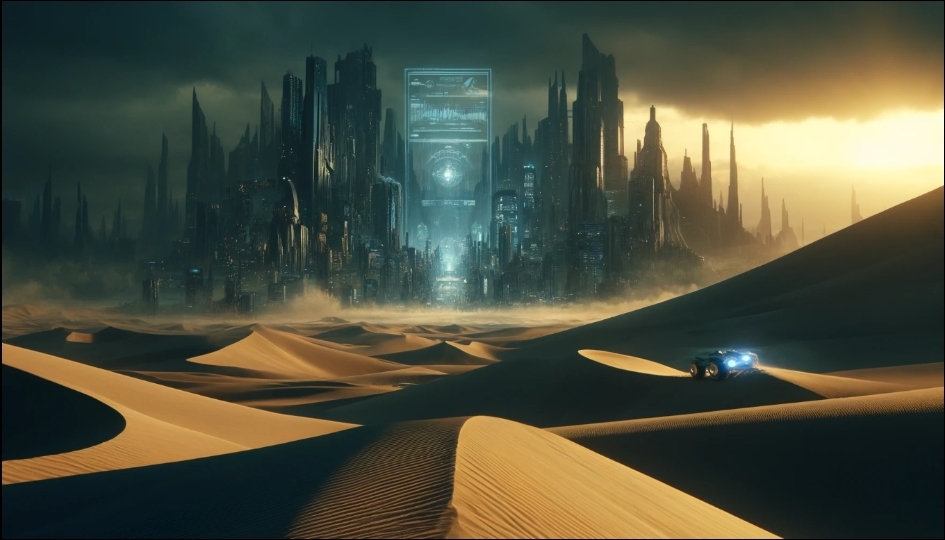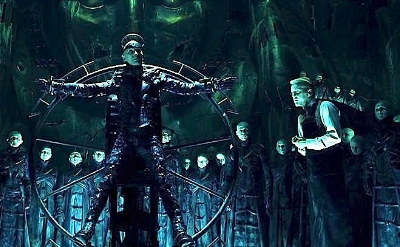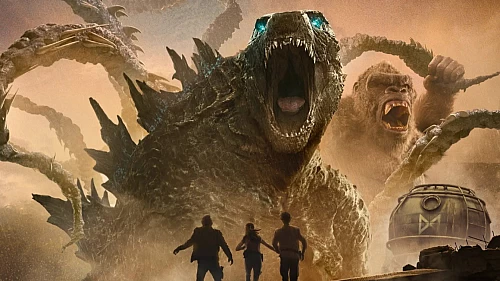There are some sci-fi movies that, as a fan of the genre, it would take more active effort not to watch than to watch. Never watching a Star Wars or a Star Trek movie would be near-impossible unless you’re actively boycotting them as a response to their (a bit pushy) fandom.
Some movies are so popular (the new Dune movies, Avatar, etc.), while some are so critically acclaimed (2001: A Space Odyssey) that they’ll make literally every list.
Our today’s article is not about that. It’s about underrated sci-fi movies that might have just flown under your radar.
We won’t list films like Stalker either. Sure, it’s an underrated movie, but it’s a Tarkovsky movie, which means that if you’ve ever seen any Sci-Fi list, you’ve encountered it. The fact that most people never watched it doesn’t mean that they don’t know about it and, therefore, under our criteria, it cannot be labeled as underrated.
With that in mind, here are the top three sci-fi movies (and mini-series) that you won’t find recommended as often but are probably worth watching.
Also, prepare ahead of time for some (light) spoilers.

-
Frank Herbert’s Dune (2000)
The latest versions of Dune are critically acclaimed and incredibly well-made. Even book purists would argue that, despite its many omissions and changes, it’s the medium that best captures the main themes in the original books.
This creates the misconception that all the previous versions of Dune are now unnecessary since there’s a clearly superior version; however, this is not so.
Every version has something unique to add to the story, and Frank Herbert’s Dune is a perfect example of this. You can watch the movie on Amazon Prime if you live in the UK or with the help of VPNs for streaming online and abroad if you live elsewhere - just set your location to within the UK via the tool.
You see, while those famous book purists love that the main idea of the story (the danger of blindly following charismatic leaders) is captured in the new movies, they might dislike the “feel” of the new movie. The problem is that, through the first novel (which is the only novel that the majority of Dune fans actually read) and two previous movies, the viewers developed the sensation that this is a movie with a happy ending. This is why the place where the new movie (part two) ends may leave a bad taste in their mouth.
Sure, it’s consistent and logical, but the movie (deliberately and for a very good reason) doesn’t create that feel-good sensation of the original movie. The good guy wins, becomes a good and just emperor, gets the girl, and walks into the sunset.
Moreover, the 1984 version (Lynch’s version) was a unique case where the acclaimed director didn’t get a final cut. The second part of the movie was cut short (so that they could squeeze in the extra screening per day), which is why the second part (Paul in the dessert) feels kind of rushed.
-
Dark City (1998)
This movie is a proto-matrix in more ways than you imagine. The big difference is that it never received the spotlight of its much more famous counterpart.
Another big difference is the aesthetics of the movie. Instead of focusing on the digital age, all the technology in the movie is clockwork-based. It’s a scenario that’s much closer to something you would expect to see in a steampunk or diesel-punk setting than this kind of sci-fi movie.
Instead of being futuristic, the movie has a much more noir look to it.
Without revealing too much, we’ll just say that the movie itself follows a similar pattern to The Matrix. You have “the chosen” protagonist who learns to control the system better than its original makers.
The world is a simulation of sorts, but, again, not in the same way as the one in The Matrix.
The main intention of the creators of the world is to try and learn more about their test subjects. This is a concept that made people in the past (at the launch of the movie) far more than it concerns us today. Sure, you have people who use VPNs, incognito mode, and even play on anonymous casinos to keep their private data as secure as they can. The problem is that the majority of people just don’t care what their information is used for and just click agree every time they’re asked about cookies.
Well, in this movie, you get a dystopian depiction of what can transpire if your data gets into the hands of a truly malicious entity. Would it be as bad in real life? Probably not. But it is a strong cautionary tale, nonetheless.
-
Minority Report (2002)
The movie is an adaptation of one of the most unique sci-fi authors of all time. Even if you didn’t watch Minority Report, you must have watched The Man In The High Castle, another epic series set in an alternate history in which the Axis forces actually won WWII. Speaking of dystopia, it doesn’t get any more chilling than that. It’s also another must-watch for your list.
Let’s get back to Minority Report.
It’s a movie that covers one of the most interesting ideas of all fiction - self-fulfilling prophesy. Just remember the story about Oedipus the King. You have a king who learns about the curse that his own son will kill him. This is why he leaves the son in the forest to be devoured by the wolves, but the son grows up, encounters him, and kills him without ever knowing he is his dad. It’s a prophecy that would never be fulfilled if the person affected never took action to prevent it.
A similar thing happens in Minority Report. In the future, you have a system that allows the police force to know about a crime before it’s even committed. Since they apprehend these criminals-to-be, we never get to see if the crime would have actually been committed or not.
The problem with this is multi-fold. First of all, do we have the right to punish people for things they’re yet to commit, regardless of how certain we are that they’ll actually do it? Does law enforcement ever have the right to make a preemptive strike?
We’re getting dangerously close to the age when predictive analytics might start seeing use in law enforcement. This is all thanks to the AI technology. How far are we from the Minority Report plot?
Sci-fi is definitely getting less and less fictitious
Every single theme here is now more relevant than ever. Never before was the world so polarizing, and it’s all thanks to the charismatic leaders that Dune warns us about. Our data and information regarding our behavior are gathered as we speak, and you have no control and no idea what they’re used for. Lastly, predictive AI and AI, in general, are new and exciting, but they are also terrifying.

The Sun is dying and Ryan Gosling is our only hope – New Project Hail Mary featurette!
New promotional video for Project Hail Mary details the film's plot outline and Ryan Gosling's role.

Sci-Fi Steampunk Western series Chrome Bounty Unveils First Look at Raw Leiba as the Gritty Outlaw Ransom Cogs
ALBUQUERQUE, NM – Production is heating up for the highly anticipated sci-fi steampunk Western series, Chrome Bounty, as producers reveal a firs...

Project Hail Mary (2026) sneak peek debuts new footage from the movie!
Ryan Gosling gives us a sneak peek of Project Hail Mary during the Winter Olympics, showcasing new footage!

Final trailer for Project Hail Mary – the Ryan Gosling sci-fi movie has landed!
Ryan Gosling must work with an intelligent alien creature to devise a way to save Earth from destruction!

What’s Next For The Alien Franchise?
Explore what’s next for one of the world’s most successful franchises in Alien – movies, tv shows, games and more.


